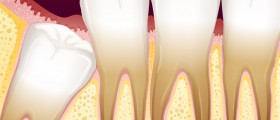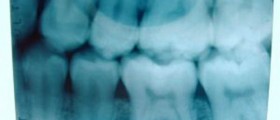
Wisdom teeth swelling is an uncomfortable and often very painful condition. It occurs when the tissue swells around one or more teeth in the lower or upper jaw. The swelling is often visible from the outside as well, which can be very embarrassing.
Causes of wisdom teeth swelling
In most cases, swelling is a result of a wisdom tooth infection. Wisdom teeth are located at the back of the mouth, they are last teeth in line in the law, and that sometimes makes them difficult to access with the toothbrush. As a result of improper hygiene, tooth decay may occur, with swelling as one of the possible signs of infection.
Swelling may happen due to impacted wisdom teeth, though this is not very common. A cyst may form around the impacted tooth and cause swelling.
Swelling is also a common aftereffect of wisdom teeth removal. If it does not subside within a day or two after the extraction, it may indicate a presence of another problem.
Symptoms of wisdom teeth swelling
The swelling of the wisdom teeth is characterized by a large visible bulge. It appears near the corner of the mandible, if the lower jaw teeth are affected. If upper wisdom teeth are affected, the bulge appears near the temporomandibular joint. There may be other symptoms along with the swelling, such as pain, headache, fever, difficulty chewing, opening or closing the jaw, radiating pain to the ear, and similar.
Treatment for wisdom teeth swellingThe first step in treating wisdom teeth swelling is to properly diagnose the case and to determine what exactly caused the swelling.
If the tooth has been affected badly by caries, root canal procedure may be an option. If the tooth is beyond salvation, it will need to be extracted.
In case the tooth has not erupted yet but the surrounding tissue is swelling, there is probably a cyst on it. In that case the tooth will need to be surgically removed along with the cyst, otherwise the swelling may reoccur.
Impacted wisdom teeth often cause swelling and pain, sometimes infections too. Dentists usually have to make an X-ray of the wisdom tooth and the adjacent teeth to determine how much damage the impacted tooth is causing. In some cases, there is no other option but to remove the impacted tooth.
Swelling is very common after wisdom teeth extraction. Normally, it subsides in a day or two after the extraction, but it helps to apply an ice pack wrapped in a clean cloth. There are also certain medications that reduce the swelling after teeth extractions.

















Your thoughts on this
Loading...